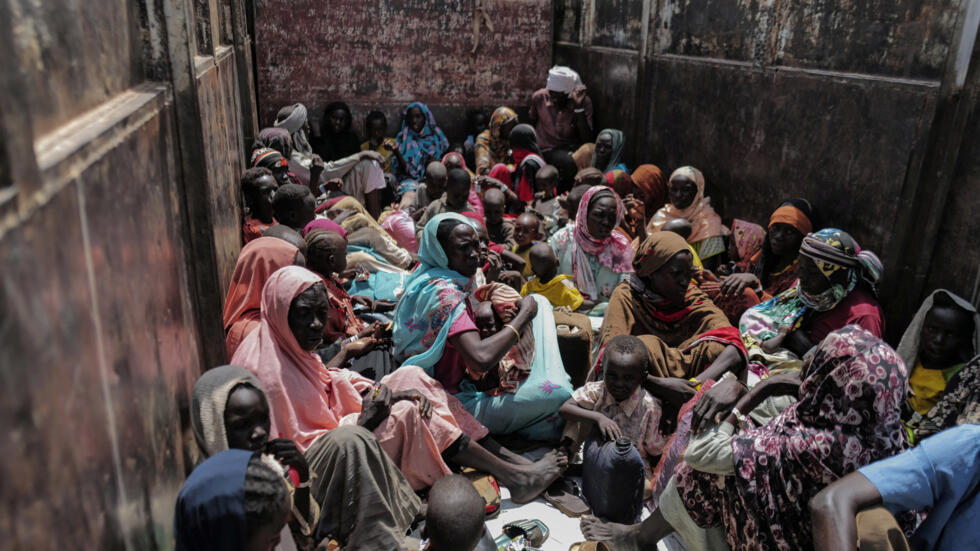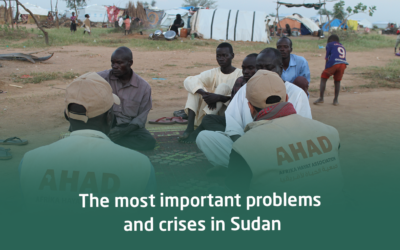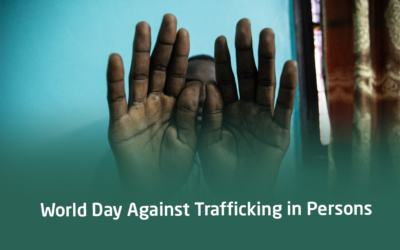Who is responsible for the hunger crisis in Africa
The hunger crisis in Africa is one of the biggest challenges facing the continent in the Twenty-First Century, a crisis that goes beyond just a food problem to include deep humanitarian, social and economic dimensions. Many African countries are experiencing acute food shortages, as a result of which millions of people suffer from malnutrition and chronic hunger. According to international reports, more than 20% of Africa’s population lives under the weight of food insecurity, making it one of the most affected continents globally. This crisis not only affects individuals and families, but its repercussions extend to economic growth and socio-political stability of the entire continent.
Several complex factors are interwoven to create this ongoing crisis, including environmental factors such as climate changes that have caused increased rates of drought and desertification, economic factors such as poverty, unemployment and poor agricultural infrastructure, as well as political factors that include internal conflicts, corruption and mismanagement. These factors combine to form a gloomy picture of the food situation on the continent, where hunger has become a structural problem that requires radical and sustainable solutions.
This article aims to explore the various aspects that contribute to the hunger crisis in Africa, highlighting those responsible for it. We will analyze the environmental, economic and political causes that have aggravated this crisis, and we will discuss the role of local governments and the international community in addressing them. By understanding the multiple dimensions of this problem, we can identify effective steps that need to be taken to combat hunger and achieve food security on the African continent.
Environmental factors
Environmental factors are one of the most prominent factors contributing to the hunger crisis in Africa, as they directly affect agricultural capacity and food production. Climate change is one of the biggest challenges facing farmers on the continent, exacerbating the problem of hunger in multiple ways.
Climatic changes
Global warming and climate changes have led to an increase in the frequency and severity of extreme weather events such as droughts and floods. In many African regions, the agricultural seasons have become irregular, which makes it difficult for farmers to predict the agricultural seasons and plant crops at the right times. For example, the Sahel region of Africa, stretching from Senegal in the west to Sudan in the East, is experiencing a severe and persistent drought. This drought leads to the failure of agricultural crops and reduces food production, weakening the ability of local communities to meet their food needs.
Droughts and floods
Frequent droughts destroy crops and reduce water resources, making it difficult for farmers to provide the water needed to irrigate their crops and water their livestock. This directly affects agricultural production and increases food insecurity. At the same time, floods lead to the destruction of agricultural land and infrastructure, which hampers agriculture and reduces productivity. For example, floods that occur in areas such as the Niger Delta contribute to the destruction of crops and make it difficult for farmers to restore their agricultural activity.
Land degradation and desertification
Human activities such as deforestation, overgrazing and unsustainable agriculture lead to land degradation and desertification. In Africa, this problem is especially acute in regions such as the African coast and the north-east of Nigeria. Environmental degradation leads to a loss of soil fertility, which makes it difficult to grow crops and increase food production. Desertification means that agricultural land is gradually turning into non-arable land, reducing the area available for food production.
Environmental factors, including climate changes, droughts, floods and land degradation, play a huge role in exacerbating the hunger crisis in Africa. These factors directly affect the productive capacity of Agriculture and make it more difficult to achieve food security on the continent. Addressing these environmental issues requires integrated efforts from local governments and the international community to develop sustainable agricultural strategies and enhance resilience to climate change.
Economic factors
Weak economic infrastructure
Many African countries have poor economic infrastructure, which is a significant obstacle to achieving food self-sufficiency. Vulnerable infrastructure includes roads, ports, warehouses and irrigation networks, all of which are essential for the efficient transportation, storage and distribution of food. Often, rural roads are unpaved and worn out, which makes it difficult to transport crops from agricultural areas to markets.
Dependence on traditional agriculture
The traditional agriculture prevalent in many African countries is inefficient and suffers from a lack of modern technology and financial resources. Agriculture in these countries depends on seasonal rains that have become irregular due to climatic changes, which makes agricultural production unstable and insufficient to meet the needs of the population. In addition, farmers lack access to improved seeds, fertilizers and modern agricultural equipment, which leads to low productivity.
Poverty and unemployment
Extreme poverty and high unemployment in Africa make it difficult for families to buy adequate food. A significant percentage of the population lives below the poverty line, which means that their income is not enough to meet their basic food needs. Even when food is available in markets, prices are often too high for poor families, making them dependent on food aid.
Unfair trade and world prices
Unfair trade and high global food prices play a huge role in the hunger crisis in Africa. Many African countries rely on food imports to meet their needs, but import prices are often high due to costs associated with transportation and Customs. In addition, unfair trade policies lead to the flooding of domestic markets with cheap agricultural products from developed countries, which undermines domestic production and increases the dependence of African countries on imports.
Political factors
Internal conflicts and civil wars
Internal conflicts and civil wars play a huge role in exacerbating the hunger crisis in Africa. These conflicts lead to the destruction of agricultural infrastructure, displacement of the population, disruption of economic activities. For example, the conflict in South Sudan has worsened the food situation and increased the number of displaced people, making it difficult for families to secure food. Armed conflicts also lead to loss of life and destruction of property, exacerbating the suffering of the population and increasing food insecurity.
Corruption and mismanagement
Corruption and government mismanagement are among the main factors hindering efforts to improve economic and social conditions in Africa. Corruption diverts financial resources away from important development projects, such as agricultural infrastructure and social programs, and reduces the effectiveness of humanitarian assistance provided. Mismanagement also leads to ineffective economic policies, exacerbating poverty and unemployment and negatively affecting food security.
Political instability
Political instability in many African countries leads to a decline in confidence in governments and institutions, which hinders investment and economic development. Without political stability, it becomes difficult to implement policies and programs aimed at improving agricultural production and enhancing food security. In addition, instability leads to brain drain and capital flight, which makes it even more difficult to achieve sustainable development.
Economic and political factors contribute significantly to the hunger crisis in Africa. Poor economic infrastructure, dependence on traditional agriculture, extreme poverty, unfair trade are all factors hindering the achievement of food self-sufficiency. At the same time, internal conflicts, corruption, mismanagement, political instability aggravate the food situation and increase the suffering of the population. To address this crisis, African governments and the international community must work together to develop comprehensive and sustainable strategies that address the economic and political aspects of this complex problem.
The role of the international community
Humanitarian assistance
The international community bears part of the responsibility for the hunger crisis in Africa. Despite the efforts made by the UN and NGOs to provide humanitarian assistance, these efforts are often insufficient and unsustainable. Emergency humanitarian assistance is necessary to alleviate the suffering of people in times of acute crisis, but it does not address the root causes of the problem. Often, such assistance focuses on the distribution of food and necessary supplies, but without building local capacities for self-sufficiency.
The need for long-term support
African countries need long-term support and international cooperation to improve agricultural infrastructure. This includes the development of modern irrigation networks, the improvement of rural roads, the creation of storage and distribution facilities. There should be a focus on strengthening local capacities through agricultural education and training, enabling farmers to use modern technology and increase their productivity. This also includes training farmers in best agricultural practices and providing them with improved seeds and the necessary fertilizers.
Encouraging investment in the agricultural sector
Encouraging investment in the agricultural sector is essential to stimulate economic development and achieve food security. The international community can play a big role in this context by providing concessional loans, financial support for agricultural projects, and stimulating international companies to invest in African agriculture. These investments should be sustainable and focused on creating local jobs, improving livelihoods, and strengthening rural economies.
The hunger crisis in Africa is a multidimensional problem that requires a comprehensive and integrated solution. Environmental, economic and political factors interfere with each other to further complicate this crisis. However, cooperation between African governments and the international community can contribute to tangible improvements in the long term.
International cooperation
International cooperation is the key to success in countering the hunger crisis in Africa. It requires coordination between governments, international organizations, and the private sector to provide the necessary support. Through joint efforts, it is possible to achieve sustainable development and strengthen food security on the continent.
Steps towards the future
By promoting investments in agricultural infrastructure, adopting fair economic policies, and ending internal conflicts, Africa can make great strides towards eradicating hunger and achieving food security for its people. International cooperation and continued support will remain crucial factors in achieving these goals and ensuring a brighter future for Africa.
You can visit the AHAD website to find out more about the projects it offers
ALSO READ
WHAT THE FOOD BASKET CONTAINS IN AHAD
Join us in our message





